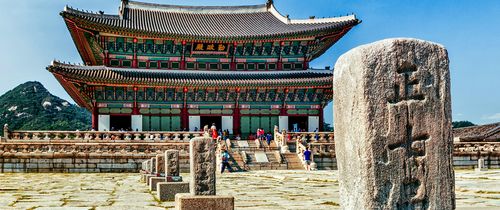
Arts + Sciences (Hanyang University)
Unique Experiences
Go to a K-Pop concert or take K-Pop dance lessons
to enjoy busking performances and Seoul's magical music culture
Explore Korea's rich culinary heritage
and try local dishes like tteopokki, gimbap, and kimchi
Make new friends through the Seoul Mates program
that matches you with local Korean students
16
UNESCO WORLD HERITAGE CULTURAL AND NATURAL SITES SPREAD THROUGHOUT SOUTH KOREA
27
BRIDGES SPANNING THE HAN RIVER, CONNECTING THE NORTHERN AND SOUTHERN PARTS OF SEOUL
9.8 M
PEOPLE LIVING IN THE CAPITAL CITY OF SEOUL
Your Destination
Seoul, the bustling capital of South Korea, beckons with its irresistible blend of tradition and modernity. Ringed by mountains, dotted by parks, and divided into north and south by the Han River, Seoul offers a dynamic environment for personal and academic growth. The city's vibrant streets pulse with energy day and night, offering a kaleidoscope of experiences ranging from traditional tea houses and ancient palaces to trendy cafés and gleaming skyscrapers.
As the educational, financial, cultural, and political capital of South Korea, Seoul is at the center of everything. This megacity is home to more than 9 million people, but each neighborhood has its own distinct unique charm. Insadong, Bukchon, and Ikseondong are filled with winding alleys lined with hidden cafés, craft studios, restaurants, and boutiques in traditional Korean Hanok houses, while Apgujeong, Jamsil, and Cheongdam-dong’s wide avenues create a park-like atmosphere for shopping, gallery hopping, and socializing between towering skyscrapers. You can use Seoul’s bike-share system to take a ride along the Han River Park in the morning, drop in at Sewoong Maker City Arcade to do some 3D printing at city-provided startup and tech facilities in the afternoon, and then take in the sunset from a mountainside temple, all without leaving the city.
Moreover, Seoul's unparalleled transportation system ensures easy access to all corners of the city and beyond, allowing you to explore its diverse neighborhoods and hidden gems. Whether relishing a hearty meal of dumplings and savory pancakes at Gwangjang Market, wearing traditional clothes for a photo shoot at Changdeok Palace’s famed gardens, strolling along the picturesque Cheonggye Stream, or checking out the latest trends in fashion and technology in Gangnam, Seoul offers endless possibilities for fun and learning. With its captivating blend of tradition and innovation, there’s no more intriguing and exciting place to embark on your journey.
CIEE wants all our students to feel welcomed, supported, and empowered to succeed while studying abroad. No matter where you choose to study abroad with CIEE, our staff will be on hand throughout your program to provide advice, resources, and support.
The Culture
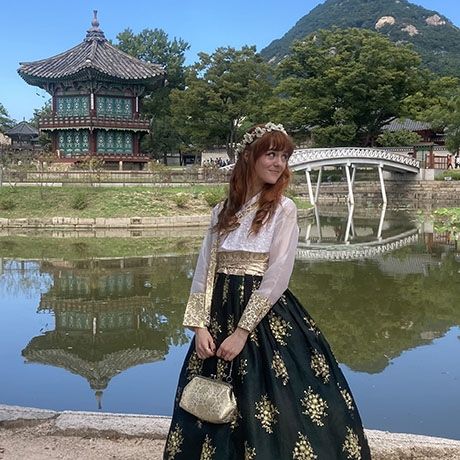
Excursions & Activities
CIEE programs boast frequent co-curricular, social and cultural activities as well as day and overnight trips uniquely designed to complement the program’s academics and enhance cultural immersion.
Co-Curricular Activities
Every course offers different co-curricular opportunities depending on the curriculum and study field. Some may feature guest speakers, laboratory work, workshops, or excursions. Activities may include site visits to relevant landmarks or locations in Korea that illustrate content explored during class sessions or hearing from relevant guest speakers who will bring their expertise to show students a different cultural, academic, and professional perspective. CIEE Seoul also organizes activities with local undergraduate students (through the Seoul Mates Program) who engage in language exchange activities to practice Korean, English, and share cultural notes.
Program Blogs
K-Pop Stan’s Guide to South Korea: 5 Must-Do Activities While Studying Abroad
By: Jacqueline Lee South Korea is the place to be as a kpop stan, so here are 5 activity ideas that you must do during your time abroad! 1. Collect... keep reading
Courses at Yonsei University—Difficulty, Planning & Advice!
If you're curious about the difficulty of college courses in South Korea, as well as course planning and advice, then this article is for you. In this blog, I delve into my courses at Yonsei University and offer helpful advice for course planning—tune in to learn more!
Capturing Seoul: My Study Abroad Adventure in South Korea
By: Jack Beattie My name is Jack, I attend Penn State and I am currently studying abroad in Seoul, South Korea. I am studying at one of the top universities... keep reading
Housing & Meals
Housing
CIEE Seoul offers diverse housing options to ensure you’re comfortable in your home away from home. With shared or single rooms off campus, we will strive for your accommodation preferences to be met. All housing options are in neighborhoods with convenient access to public transportation, shops, cafés, and eateries.
Standard Housing: Includes a double-occupancy bedroom in a dormitory on campus or a residence hall off-campus, within a 50-minute commute to CIEE Seoul and a 30-minute commute to Hanyang campus.
Select Plus Housing: Includes single rooms in a residence hall off-campus, within a 30-minute commute to CIEE Seoul and Hanyang campus. Select housing requires an additional fee.
A note: The default criterion to assign housing is first-come, first-served; however, other factors may also be considered. If we cannot accommodate your first housing choice, we'll let you know before you arrive. Non-standard housing options require an additional fee that can be found in the program Dates and Fees.
Meals
Meals are not provided as part of the program, but students may have access to facilities for preparing their own meals. Seoul offers an array of dining options, from street food vendors to upscale restaurants, allowing you to explore Korean cuisine at your leisure.
Academics
Arts and Sciences (Hanyang University) is ideal for students looking to engage in studies at one of Asia’s top universities for STEM, humanities, and the arts. Founded originally as an engineering college, Hanyang has developed into a powerhouse of innovation, with a huge variety of facilities for students to create media, work with transformative technologies, and connect with students and faculty across a broad range of disciplines. Located in the very heart of Seoul, near the Han River and a quick bus or subway trip to most parts of the city, Hanyang offers students an exceptional academic experience.
For this program, all students enroll in at least one Korea-related course to help deepen their understanding of this exciting country and help them learn more about its history, culture, economics, or language. Hanyang offers hundreds of courses in English, as well as a full complement of Korean-language courses. Students will take 12-18 credits per term as they become part of this vibrant campus community.
The Korean academic year begins in March, with the first term running until mid-June. Fall semester begins in early September and concludes in mid-December. Most university courses use lectures as the main component, combined with group work and presentations.
Arizona State University: Enhance your international academic coursework with optional online courses that best align with your degree requirements and interests. ASU offers thousands of online courses in asynchronous sessions that fit within the CIEE academic calendar, so you can study abroad with CIEE while continuing to meet all your academic goals.
Course Information
Not all courses are offered every semester, and some courses have prerequisites. Typically, the first course in a series will be offered in the spring, with the next step in the course series offered in the fall, in line with the Korean school year which begins in March. To get an idea of what will be available in any given semester, consult the online catalog from the desired semester in the previous year. A final list of courses and syllabi for the term will be made available during the course enrollment process. To see a list of courses, please visit the following site and click first on the American flag to see the page in English, then on “course catalog”: https://portal.hanyang.ac.kr/sugang/sulg.do.
The following list of courses constitutes a representative sample of course offerings from Hanyang University and is subject to change. In some cases, prior background knowledge or prerequisites may be required to enroll in a class.
- Principles of Architectural Representation
- Design Fundamentals 1 & 2
- Fundamentals of Computational Media Design
- History of Korean Architecture
- Introduction to Engineering Design
- Software Design Programming
- Discrete Mathematics
- System programming
- Numerical Analysis
- Strategic Marketing & Case Studies
- Behavioral Economics for Business Strategies
- Consumer Behavior and Content Creation
- Macroeconomics
- Digital Marketing
- Culture of Korea and Korea Wave
- History of Korean Cinema
- Theories of Mass Communications
- Animal Ethics
- Aesthetic Awareness in the Modern World
- Civil Society and Social Movements
- Ancient History of Korea
Students interested in enrolling in Korean-taught courses are expected to have advanced language proficiency; Hanyang will not test students on their language level.
CIEE proudly partners with ASU to deliver asynchronous, online coursework that aligns with your degree requirements from anywhere you study abroad.
CIEE and ASU offer courses online per program eligibility, at no additional charge. Be sure to review online courses with your home school advisor.
Check the CIEE Program Dates and ASU start dates below to maximize course options within your program!
Search ASU Online Courses BROWSE FAQs for more INFO
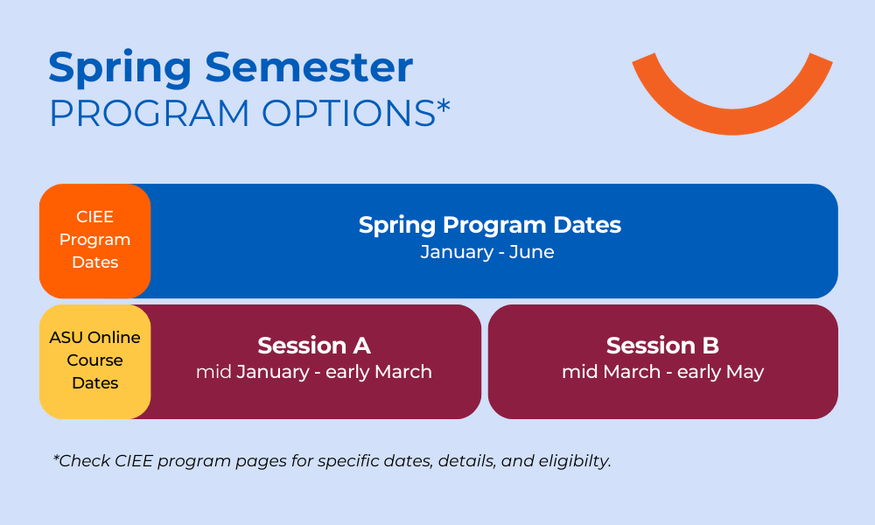
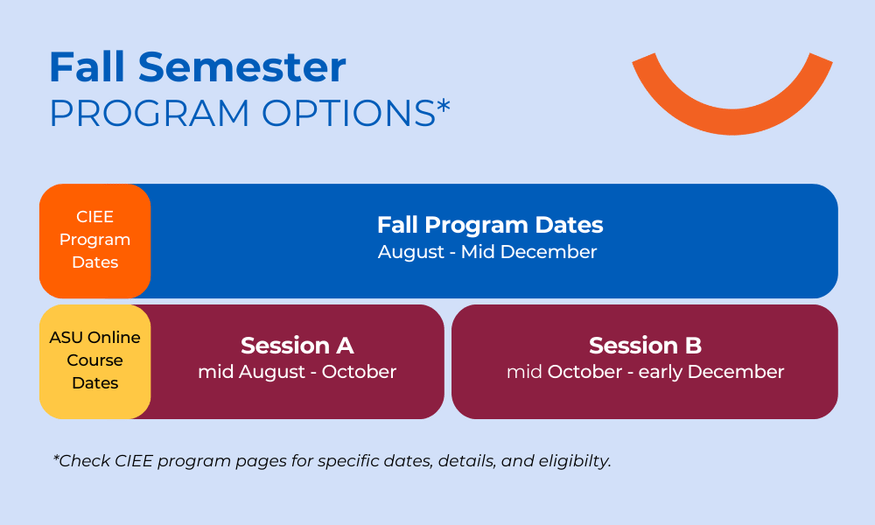
Note: This course listing is for informational purposes only and does not constitute a contract between CIEE and any applicant, student, institution, or other party. The courses, as described, may be subject to change as a result of ongoing curricular revisions, assignment of lecturers and teaching staff, and program development. Courses may be canceled due to insufficient enrollment.
"(GI)" denotes courses that originated at CIEE's Global Institutes and that are offered at multiple CIEE sites.
Scholarships & Grants
CIEE offers scholarships and grants annually to help students like you make your study abroad dream a reality.
Students who apply to this program are eligible for the following scholarships and grants:
- Wollitzer Merit Scholarships in Area or Comparative Studies
- Ping Scholarships for Academic Excellence
- CIEE Gilman Go Global Grant
- MSI Grant
- Trailblazer Grant
To be considered, submit the CIEE Scholarships & Grants application within your CIEE program application.
Dates & Fees
You get more for every dollar when you study abroad with CIEE, because our high-quality programs include everything from excursions to insurance. There are no hidden charges, and no disappointing surprises when you arrive.
Program |
Application Due |
Start Date |
End Date |
Fees & Housing |
|---|---|---|---|---|
| Program Fall 2025 16 weeks | Application Due Deadline Passed | Start Date * | End Date * | Fees & Housing $18,950 |
| Program Academic year 2025-2026 43 weeks | Application Due Deadline Passed | Start Date * | End Date * | |
| Program Spring 2026 17 weeks | Start Date * | End Date * | ||
| Program Spring 2025 17 weeks | Application Due Deadline Passed | Start Date * | End Date * | Fees & Housing $18,950 |
*Dates for this program are provided as tentative dates. Please consult with your study abroad advisor to confirm dates before purchasing your flights.
To help you budget, keep in mind that students are responsible for the cost of international airfare, local transportation, books and supplies, visas, and personal expenses. In addition, your college or university may charge additional fees for study abroad, or may require you to receive a transcript via CIEE's School of Record, which carries an additional fee of $500.
Program Fees
CIEE offers the most student support of any provider in its program fee, including an airport greeting, full-time leadership and support, orientation, cultural activities, local excursions, pre-departure advising, and CIEE iNext travel protection with benefits.
| Participation Confirmation | $300 * |
| Educational Costs | $14,456 ** |
| Housing | $4,000 *** |
| Insurance | $194 |
| Total Fees | $18,950 |
Optional Housing
CIEE accommodation options are detailed in the Housing section. Based on availability, Select or Select Plus Housing can be chosen during the application process for an additional fee. Housing is assigned on a first-come, first-served basis; however, other factors may also be considered.
| Select Plus Housing Fee | $3,600 |
Financial Aid
CIEE offers the most grants and scholarships of any study abroad organization, including $8 million/year in travel grants, merit-based scholarships, institutional and MSI grants, and Gilman Go Global Grants.
Estimated Costs
Students are responsible and manage costs related to travel, meals, books, and personal expenses. Below are estimates for consideration.
| Meals not included in program fee | $2,385 † |
| International Airfare | $1,250 †† |
| Local Transportation | $150 |
| Books & Supplies | $300 |
| Personal expenses | $380 |
| Other | $224 ††† |
| Total Costs | $4,689 |
*non-refundable fee
**direct cost of education charged uniformly to all students
***Housing fees listed are for financial aid purposes only and should not be considered a basis for calculation of refunds.
†For groceries if you plan on making your own meals, budget more money if you plan on eating out regularly.
††round-trip based on U.S. East Coast departure
†††Korean National Medical Insurance. All international students are legally required to enroll in Korea’s national health insurance program. All are enrolled automatically as soon as they apply for the required Residence Card. A bill is sent on a monthly basis (approximately $56 per month). The insurance covers up to 80% of inpatient treatments and medical services and 30-70% of outpatient treatments and services.
Program Fees
CIEE offers the most student support of any provider in its program fee, including an airport greeting, full-time leadership and support, orientation, cultural activities, local excursions, pre-departure advising, and CIEE iNext travel protection with benefits.
Financial Aid
CIEE offers the most grants and scholarships of any study abroad organization, including $8 million/year in travel grants, merit-based scholarships, institutional and MSI grants, and Gilman Go Global Grants.
Estimated Costs
Students are responsible and manage costs related to travel, meals, books, and personal expenses. Below are estimates for consideration.
Program Fees
CIEE offers the most student support of any provider in its program fee, including an airport greeting, full-time leadership and support, orientation, cultural activities, local excursions, pre-departure advising, and CIEE iNext travel protection with benefits.
Financial Aid
CIEE offers the most grants and scholarships of any study abroad organization, including $8 million/year in travel grants, merit-based scholarships, institutional and MSI grants, and Gilman Go Global Grants.
Estimated Costs
Students are responsible and manage costs related to travel, meals, books, and personal expenses. Below are estimates for consideration.
Program Fees
CIEE offers the most student support of any provider in its program fee, including an airport greeting, full-time leadership and support, orientation, cultural activities, local excursions, pre-departure advising, and CIEE iNext travel protection with benefits.
| Participation Confirmation | $300 * |
| Educational Costs | $14,456 ** |
| Housing | $4,000 *** |
| Insurance | $194 |
| Total Fees | $18,950 |
Optional Housing
CIEE accommodation options are detailed in the Housing section. Based on availability, Select or Select Plus Housing can be chosen during the application process for an additional fee. Housing is assigned on a first-come, first-served basis; however, other factors may also be considered.
| Select Plus Housing Fee | $2,500 |
Financial Aid
CIEE offers the most grants and scholarships of any study abroad organization, including $8 million/year in travel grants, merit-based scholarships, institutional and MSI grants, and Gilman Go Global Grants.
Estimated Costs
Students are responsible and manage costs related to travel, meals, books, and personal expenses. Below are estimates for consideration.
| Meals not included in program fee | $2,385 † |
| International Airfare | $1,250 †† |
| Local Transportation | $150 |
| Books & Supplies | $300 |
| Personal expenses | $380 ††† |
| Other | $224 †††† |
| Total Costs | $4,689 |
*non-refundable fee
**direct cost of education charged uniformly to all students
***Housing fees listed are for financial aid purposes only and should not be considered a basis for calculation of refunds.
†For groceries if you plan on making your own meals, budget more money if you plan on eating out regularly.
††round-trip based on U.S. East Coast departure
†††$100 emergency fund + cell phone expense + toiletries
††††Korean National Medical Insurance. All international students are legally required to enroll in Korea’s national health insurance program. All are enrolled automatically as soon as they apply for the required Residence Card. A bill is sent on a monthly basis (approximately $56 per month). The insurance covers up to 80% of inpatient treatments and medical services and 30-70% of outpatient treatments and services.
What's Included
Tuition
Housing
Pre-departure Advising
Advising before you depart to set goals and answer questions
Optional on-site airport meet-and-greet
Orientation
Introduction to your program plus practical information about living in your host city
On-site Staff
Full-time program leadership and support in your city
Cultural and/or Co-curricular Activities
Excursions and/or Study Tours
Travel Protection
CIEE iNext travel protection
24/7 emergency on-site support
Our Staff
Get Started
1
2
Connect With Your Campus Study Abroad Office
Share your plans and confirm you're on track to meet all required steps to go abroad.
3
Contact Us
Send us an email if you still have questions or need information about applying to this program.
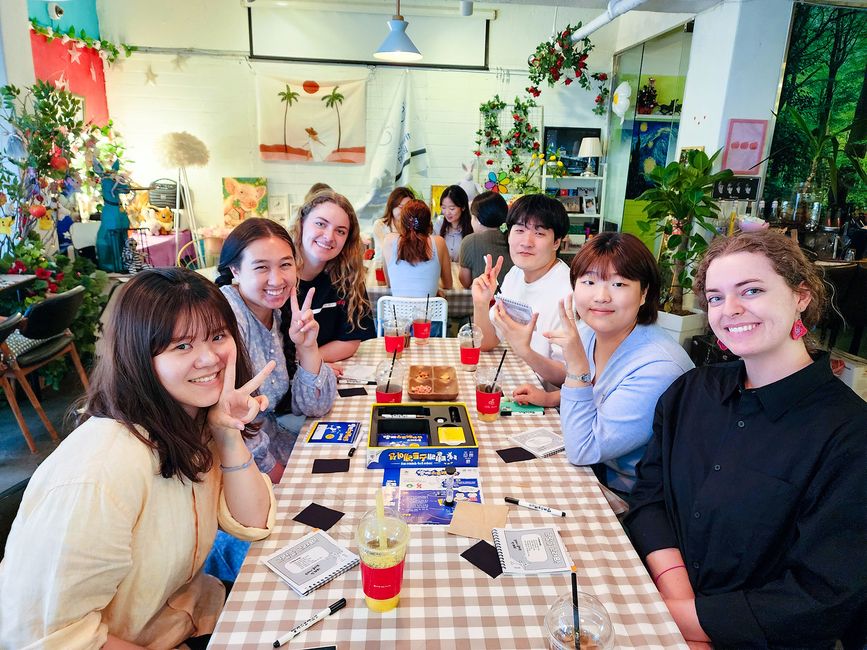
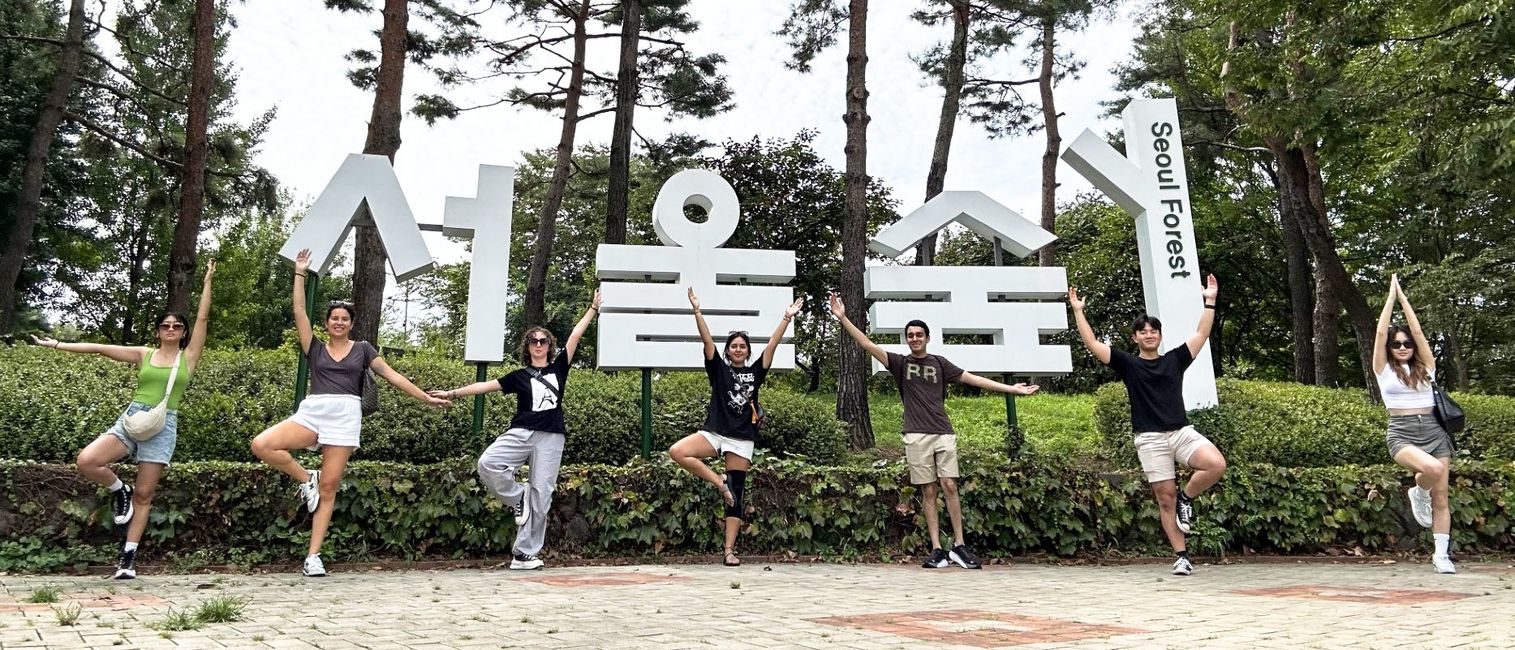
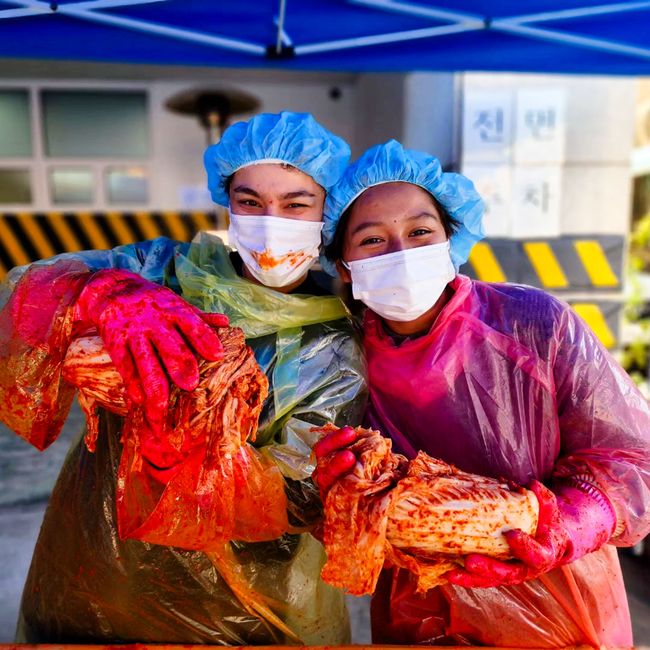
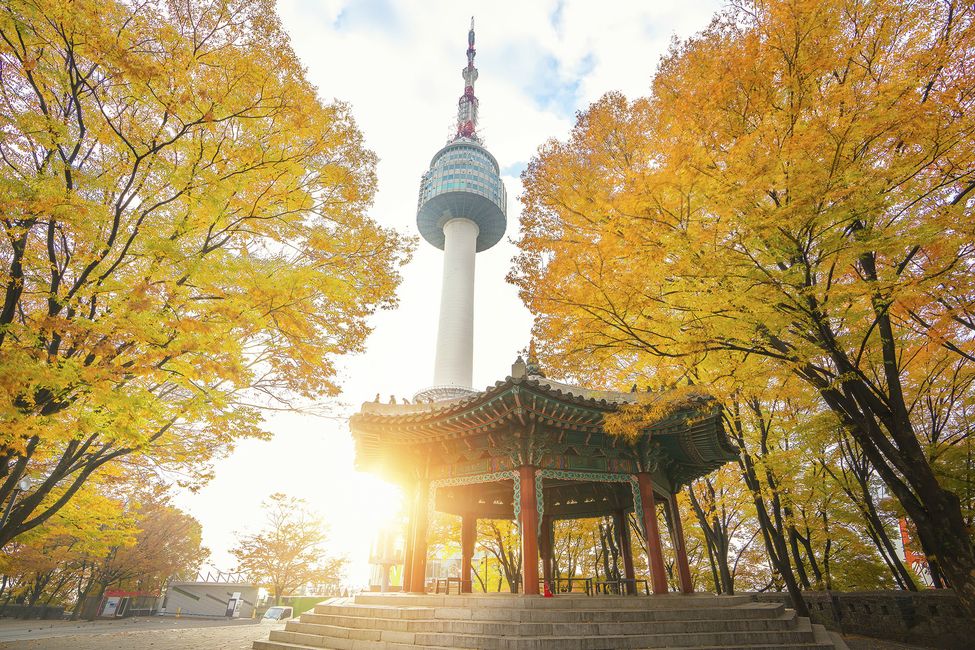
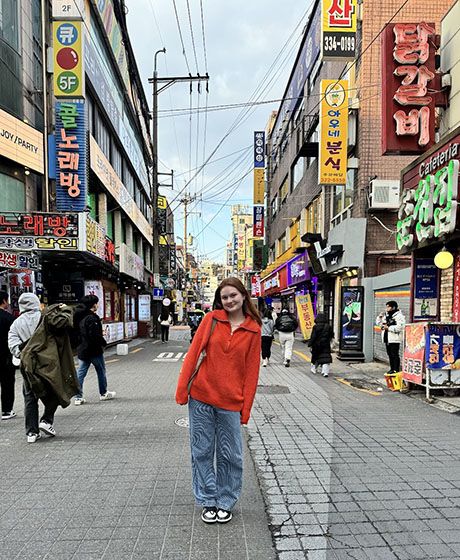
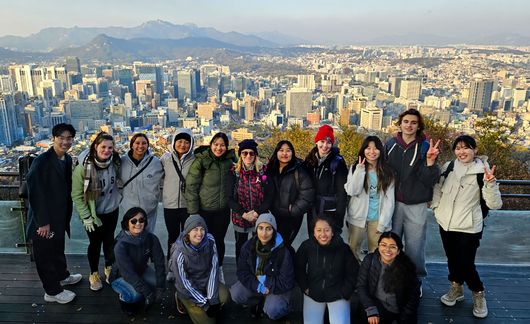



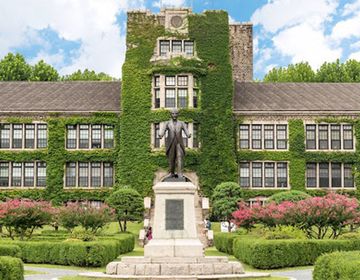


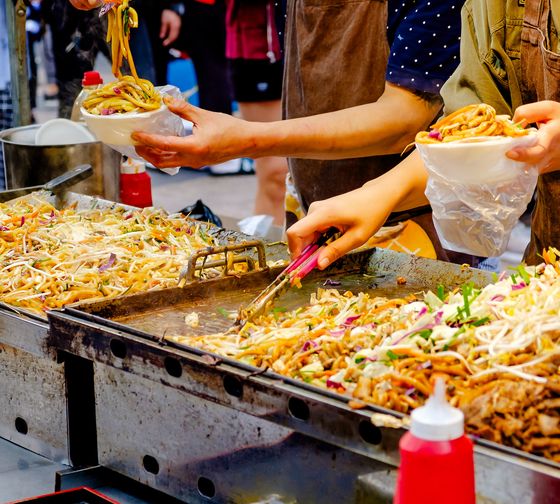
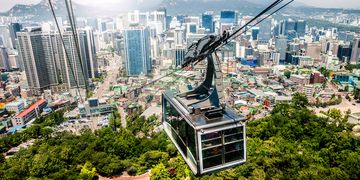
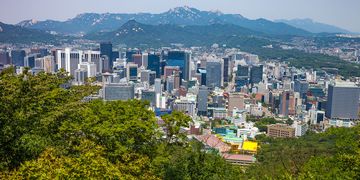
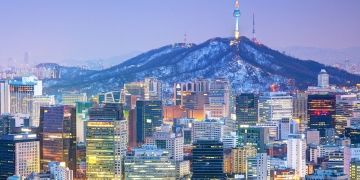
Social and Cultural Activities
While in Seoul, participants might: